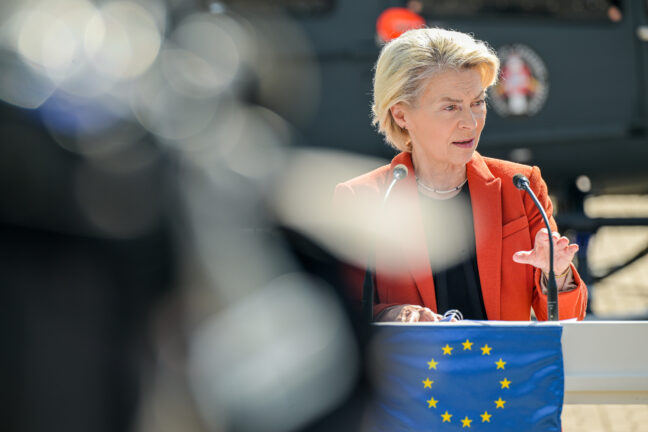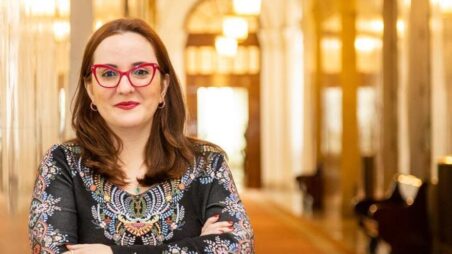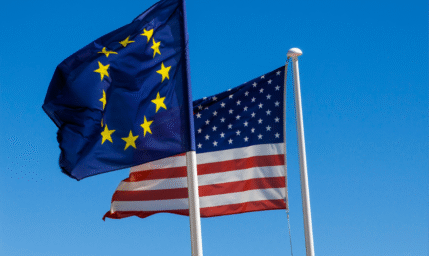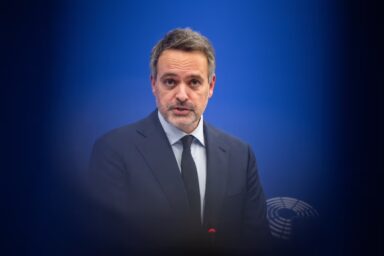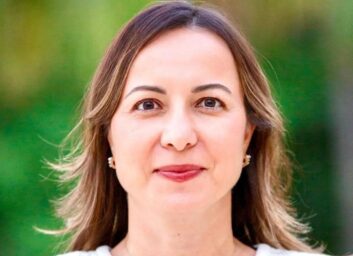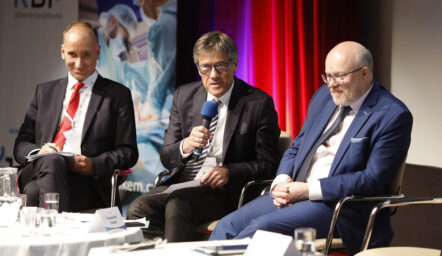European Commission President Ursula von der Leyen’s recent tour is sending a message from the edges of the Union: Europe’s borders are not just lines on a map, but the frontline of the continent’s security.
Recently, Ms von der Leyen has crisscrossed Europe’s eastern flank—from the Polish-Belarusian border to a weapons factory in Bulgaria and a military outpost in Lithuania—in a four-day tour designed to showcase Brussels’ commitment to defense and migration control. “A sense of urgency”, regarding her official visits, is the opening aim claimed in her first stop in Poland.
The timing is no coincidence. With Russia ramping up pressure on Ukraine and sharpening its hybrid warfare tactics against EU neighbors, Ms von der Leyen is betting that fortress Europe will define her second term at the helm of the Commission.
Poland: the symbolic frontier
Commission President opened her tour on August 31 in Krynki, Poland, a small town that has become a symbol of the EU’s confrontation with Minsk and Moscow. Standing alongside Polish Prime Minister Donald Tusk, she cast the border as Europe’s shield.
This is the border we must protect. – Commission President von der Leyen in Poland
“This is the border we must protect,” Ms von der Leyen said, pledging more financial flexibility from Brussels to help Warsaw shoulder the costs of fortifying its frontier. The remarks were aimed as much at Moscow as at Polish voters, who remain divided over how to balance national sovereignty with EU oversight.
Bulgaria: arms and alliances
From Poland, Commission President flew south to Sopot, Bulgaria, where she toured the VMZ arms plant, one of the country’s largest weapons manufacturers. There, she lauded Bulgaria’s contributions to Kyiv’s war effort. “One-third of the weapons used by Ukraine at the start of the war came from Bulgaria,” she said—a reminder to critics in Western capitals that Eastern Europe’s defense industries remain indispensable.
But her stop also served a political purpose. Bulgaria has been a weak link in Europe’s geopolitical chain, with pro-Russian parties gaining ground domestically. By spotlighting Sofia’s role as an arsenal for Ukraine, Ms von der Leyen sought to bind the country more tightly into Brussels’ security narrative.
You might be interested
Lithuania: billions on the table
The centerpiece of the tour came in Medininkai, Lithuania, on September 1. Against the backdrop of barbed wire fences and border patrols, Ms von der Leyen unveiled sweeping new funding commitments. These inlude tripling of EU money for migration and border management, a fivefold increase in defense allocations, and a tenfold boost for military mobility.
She also highlighted the new SAFE loan facility, a €150bn EU program designed to give member states cheap credit for defense and security projects. Lithuania has already applied for €8bn. The announcements drew applause from Baltic leaders, who have long demanded more EU resources for what they see as the frontline of European democracy.
It is a risk that could lead to even more human rights abuses at borders and within the EU. – Chiara Catelli, Platform for International Cooperation on Undocumented Migrants
But critics warn that the spending spree risks entrenching abusive practices. As Chiara Catelli, Advocacy Officer at Platform for International Cooperation on Undocumented Migrants (PICUM), told EU Perspectives, “tripling money for funds that have sponsored violent border surveillance in the past is a worrying step that risks leading to even more human rights abuses at borders and within the EU”.
In parallel, Catelli reminds that “the same goes for the proposed increase in funds for Frontex, an agency that’s been accused of complicity in human rights violations at the borders multiple times. What we need are serious investments in social inclusion policies that leave no one behind.”
Hybrid threats in the air
The tour itself became a case study in Europe’s security vulnerabilities. While flying over Bulgaria, Ms von der Leyen’s plane suffered a GPS outage. EU officials later said Russian interference was to blame. Though the aircraft landed safely using alternative navigation, the incident underscored how hybrid threats—from cyberattacks to electronic warfare—are increasingly part of Moscow’s toolkit. The symbolism was not lost on Brussels: even the EU’s top official is not immune to Kremlin pressure.
Promoting EU as a geopolitical actor
Commission President’s itinerary also included Estonia, Latvia, Finland and Romania, rounding out a show of solidarity with every EU country bordering Russia or Belarus. For her, the trip was more than a fact-finding mission. It’s a stage for a broader political narrative: that the EU is no longer just a market or a regulatory power, but a geopolitical actor willing to spend—and risk—to defend itself.
“When Lithuania is tested, all of Europe is tested,” Commission President declared in Medininkai. The words echoed across a continent still grappling with the costs of war in Ukraine, the rise of nationalist politics, and the tension between human rights and hard borders. Whether Ms von der Leyen’s promises translate into lasting security—or into deeper divides within the Union—will define much of her second term.
